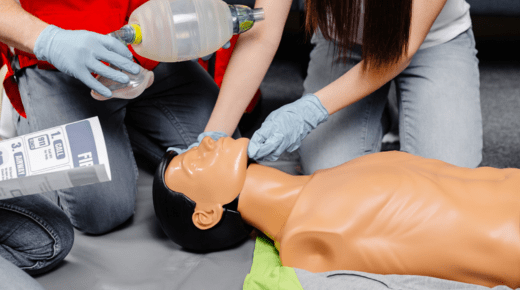Introduction to Basic Cardiac Life Support (BCLS)
Basic Cardiac Life Support (BCLS) courses are designed to equip individuals with essential skills to respond effectively to cardiac emergencies. These courses cover techniques such as cardiopulmonary resuscitation (CPR), automated external defibrillator (AED) use, and choking relief.
Importance of BCLS Training
BCLS training is crucial for anyone, regardless of profession or background, as cardiac emergencies can occur anytime, anywhere. Being prepared to administer immediate assistance can significantly improve the chances of survival for someone experiencing cardiac arrest.
Curriculum Overview
BCLS courses typically include both theoretical knowledge and practical skills training. Participants learn about the anatomy and physiology of the cardiovascular system, signs and symptoms of cardiac emergencies, and proper techniques for CPR and AED use.
CPR Techniques
Participants learn how to perform high-quality CPR on adults, children, and infants. This includes chest compressions, rescue breathing, and the proper ratio of compressions to breaths. Hands-on practice with manikins allows participants to develop confidence and proficiency in CPR skills.
AED Operation
AEDs are portable devices that deliver an electric shock to restore normal heart rhythm in cases of sudden cardiac arrest. BCLS courses teach participants how to recognize when an AED is needed, how to operate the device safely, and how to follow voice prompts for effective use.
Choking Relief
Choking can obstruct the airway and lead to asphyxiation if not promptly addressed. BCLS courses teach participants how to recognize choking emergencies and perform abdominal thrusts (Heimlich maneuver) to dislodge foreign objects and restore airflow.
Team Dynamics
In real-life cardiac emergencies, effective teamwork is essential for coordinating efforts and maximizing outcomes. BCLS courses emphasize the importance of clear communication, leadership, and role assignment among responders.
Special Considerations
BCLS training also covers special considerations such as managing cardiac emergencies in unique populations, including pregnant women, infants, and individuals with disabilities or medical conditions.
Certification and Renewal
Upon successful completion of a BCLS course, participants receive a certification card valid for a specified period, usually two years. Renewal courses are available to refresh knowledge and skills and maintain certification status.
Instructor-Led vs. Online Courses
BCLS courses may be offered in a traditional classroom setting with an instructor or online with virtual instruction. Both formats provide valuable education, but hands-on practice in a classroom setting may offer a more immersive learning experience.
Cost and Accessibility
BCLS courses vary in cost depending on the provider, location, and format. Many organizations offer BCLS training to employees or members as part of workplace safety initiatives. Public courses are also available through healthcare institutions, community centers, and online platforms.
Continuing Education Credits
Some professions require BCLS certification as part of licensure or continuing education requirements. Healthcare professionals such as nurses, physicians, and emergency medical personnel often need to maintain current BCLS certification to practice.
Empowerment and Confidence
Completing a BCLS course empowers individuals to take action in cardiac emergencies and potentially save lives. Confidence in one’s ability to respond effectively can make a critical difference in the outcome of a cardiac arrest situation.
Community Impact
BCLS-trained individuals become valuable assets to their communities by serving as first responders in emergencies. Their readiness to intervene in cardiac emergencies contributes to a safer and more prepared community overall.
Emergency Preparedness
BCLS training is part of a broader effort to promote emergency preparedness and public health awareness. By investing in BCLS education, communities become more resilient and better equipped to handle medical emergencies.
Conclusion: Commit to BCLS Training
In conclusion, Basic Cardiac Life Support (BCLS) courses provide essential knowledge and skills for responding to cardiac emergencies effectively. Whether for personal enrichment or professional development, committing to BCLS training is a proactive step toward becoming a capable and confident responder in critical situations. Consider enrolling in a BCLS course today to make a difference in your community’s safety and well-being.




